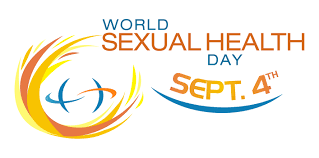Sex
Abstinence-Only Sex Ed: Harmful? Unethical?
Yes, say both students and the Society of Adolescent Health & Medicine.
Posted September 5, 2017

Last week, I posted a rudimentary, picture of the clitoris from Becoming Cliterate on Facebook, saying "It's not a wishbone. It's covered in schools in the Netherlands but not in the U.S. Not knowing about how it works fuels a gender gap." I was referring to research finding that men have more orgasms than women during partnered sex. The post struck a nerve (pun intended), with over 1300 likes, 200 shares, and 150 comments. The comments had little to do with the the clitoris, however. They were about problems with sex ed in the U.S.
This inadequacy of sex ed was the focus of a position paper published this month by the Society for Adolescent Health and Medicine. This position paper took a stance against Abstinence-Only-Until-Marriage (AOUM) Programs. While the entire position paper is well worth the read, here are some of the major points, peppered with real-life examples from the Facebook post, students in my Psychology of Human Sexuality course, and a funny but true John Oliver video:
- The basis for these programs is scientifically flawed. The position paper states that "While proponents for AOUM programs suggest that sexual activity outside of marriage is likely to have harmful psychological and physical effects, we find no evidence that consensual sex between adolescents is psychologically harmful."
- These programs are ineffective in achieving their goals. These programs are designed to prevent intercourse before marriage and to decrease teen pregnancy and sexually transmitted infection (STI) rates. According to several studies, including one by U.S. Centers for Disease Control and Prevention, they don't work. Conversely, programs that provide "comprehensive sexual education" (i.e., sex education that includes information on both abstinence and contraception) are effective in reducing teen pregnancy and STI rates. In short, it doesn't work to tell teens not to have sex until marriage They do so anyway, but they just do so unsafely. I've had more than one student tell me, "I was told contraception was immoral, so I didn't use it." Sadly, for some, the result has been an unplanned pregnancy or an STI.
- There is little public or professional support for these programs. Public opinion polls show most favor comprehensive Sex Ed. So does the U.S. Department of Health and Human Services, as well as the major professional associations of physicians and public health workers.
- These programs are harmful. This powerful section of the report pointed out that these programs hurt several groups of youths:
- "These programs are harmful to sexual minority youth": They stigmatize non-heterosexual orientations as deviant, and research demonstrates that being stigmatized can contribute to an array of problems, including suicide, feelings of isolation, and substance abuse, to name a few. A Facebook commenter said that in her school they told the males that "they'd have a 90% chance of catching an std when having gay sex."
- "These programs reinforce gender stereotypes about female passivity and male aggressiveness." The report cites research associating rigid gender beliefs with risky sexual health behaviors. On the flip side, the report cited research finding that Sex Ed programs that critique gender norms have a positive impact on sexual health outcomes. One gender norm prevalent in AOUM Sex Ed programs is "slut shaming," including the idea that women who have sex before marriage are "used up." A Facebook commenter described a teacher who had the students write whether or not they were virgins on a slip of paper (thankfully, without names) and then told the class that "all the girls who were not virgins likely had STDs and wouldn't finish school." Another student described a movie that likened a sexually active female to an old shoe that no one would want to wear. You can see this at about the 13 minute mark in the John Oliver video.
- These programs ignore the realities of adolescents who have experience of sexual abuse or exploitation. As stated in the report, "These young people ...may be made to feel guilty for their experiences rather than supported by the education and health care systems." The John Oliver clip shows a video of a young woman who was kidnapped and raped talking about how she felt when her teacher compared anyone who'd had intercourse before marriage to a used up piece of gum that no one would ever want.
- These programs ignore sexually experienced adolescents. Pregnant and parenting students are ignored or stigmatized, and young people who are already sexually active don't receive the information they need to prevent pregnancy and STIs.
- These programs are unethical. The position paper points out that these programs violate educational and medical ethics, which call for the provision of accurate and compete information. Instead, these programs exclude accurate information about contraception and "misinform by overemphasizing or misstating the risks of contraception." Indeed, according to the National Conference on State Legislators, only 20 states require that Sex Ed be medically or factually accurate. In the other States, sex educators can base their lessons on values rather than facts, and tell outright lies to students. A student told me that she was taught that if she had intercourse before marriage her vagina would mold to the shape of that man and her husband would never be satisfied, clearly a bold slut shaming lie. And, another whopper from the Facebook thread: a Sex Ed teacher who "... told us if we had sex we would catch a STD, get pregnant, then have an ectopic pregnancy where either the mother or baby would die."
- These programs violate human rights. Both the United Nations and the World Health Organization have proclaimed that the right to accurate sexuality education and information is a basic human right. As stated by the position paper, "These international treaties and statements clearly define the important responsibility of governments to provide accurate and complete information on sexual health to their citizens." AOUM programs violate this principle.
In short, the The Society for Adolescent Health and Medicine calls AOUM programs unethical, harmful, and even a human rights violation. They propose instead, as does the United Nations, that we provide Comprehensive Sex ED.

While that is a critical step in the right direction, even most Comprehensive Sex Ed programs neglect something included by the World Health Organization (WHO) definition of sexual health. The WHO defines sexual health as including "...having pleasurable...sexual experiences" and defines sexuality as including "eroticism" and "pleasure." That's why I wrote my book: To fill in the gaps on female pleasure left out of Sex Ed. That's why I posted the picture and pointed out that we don't teach this in sex ed in the U.S, but they do in the Netherlands.
In the Netherlands, among many other topics (including abstinence, birth control, communication, and the difference between porn sex and real sex), they teach about the pleasure. Scholars have argued that learning about sexual pleasure and gaining comfort with one's own body empowers one to communicate one's sexual desires to others. Such sexual agency makes one less likely to endure painful sex (something 30% of US women report doing) and less likely to be coerced (or coerce others) into unwanted sexual relationships. The data back this up:The Netherlands has three times less sexual violence than the U.S. They also have lower pregnancy and STI rates. As stated by one article, "Girls learn their sexual desires are perfectly natural, and boys are encouraged to embrace their emotions and romantic feelings." Contrast this with one of the more heart-wrenching statements on the Facebook post: "The first time my education stepped in to talk about sex, it was terrifying. I was in sixth grade and all they showed was a slideshow of horribly diseased genitalia. They didn't talk about safe sex. They didn't talk about pleasure. They only spoke of disease, consequences and abstinence. I'm still terrified at 18 years old to have an intimate relationship out of fear."

September 4 is World Sexual Health Day. It's celebrated by 35 countries. I hope our country soon does better. Until then, thousands of dedicated sex educators will, as stated by SEICUS, ".. advocate for the right of all people to accurate information, comprehensive education about sexuality...." We will continue to teach and write with the goal of creating a world whose vision of social justice includes sexual rights--including the right to accurate science-based sex education.


